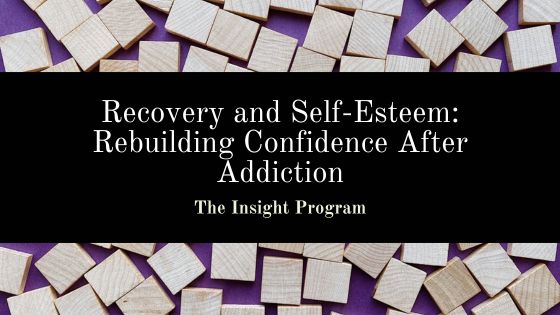Addiction can leave deep emotional scars, including damage to self-esteem. Many people in recovery struggle with feelings of shame, guilt, and low self-worth. Rebuilding confidence is not only essential for emotional healing but also for maintaining long-term sobriety. As individuals begin to reclaim their lives, nurturing a healthy self-image becomes a powerful foundation for lasting recovery.
The Link Between Addiction and Self-Esteem
Before recovery, many people turn to substances as a way to escape from emotional pain or feelings of inadequacy. Over time, addiction reinforces negative self-perceptions. Broken relationships, job loss, and personal setbacks often feed into a cycle of guilt and self-criticism. This can lead to a belief that one is unworthy of love, success, or happiness.
In recovery, these harmful beliefs must be addressed. Without improved self-esteem, the risk of relapse increases. Feeling confident and worthy supports the ability to make healthier choices, build positive relationships, and pursue meaningful goals.
Start with Self-Compassion
The process of rebuilding self-esteem begins with self-compassion. Recovery is not about perfection—it is about progress. Everyone makes mistakes, and healing involves learning from them, not punishing yourself for them.
Speaking to yourself with kindness and patience is key. Replace harsh self-talk with supportive thoughts. For example, instead of saying “I always mess up,” try “I am learning and growing, one day at a time.” This shift in mindset can reduce shame and open the door to self-forgiveness.
Celebrate Small Wins
Confidence grows when you recognize and celebrate progress, no matter how small. Completing a step in your recovery plan, attending support group meetings, or setting boundaries are all victories worth acknowledging. Each accomplishment reinforces the belief that you are capable and strong.
Keeping a journal or tracking goals can help you see how far you have come. It also provides motivation during difficult times. When you look back and see tangible progress, it becomes easier to believe in yourself.
Build Supportive Relationships
Surrounding yourself with people who uplift and encourage you is vital. Negative or toxic relationships can drag down your self-esteem, while supportive ones help it grow. Seek out communities and friendships where honesty, respect, and encouragement are mutual.
Support groups, therapy, or mentorship programs are great spaces to build trust, share experiences, and learn from others who understand the recovery process. Being seen and accepted by others can help you start to see yourself in a more positive light.
Develop New Skills and Interests
Recovery is also an opportunity to explore new interests and rediscover passions. Whether it is learning a new skill, volunteering, or returning to school or work, engaging in meaningful activities can help rebuild a sense of purpose and identity.
These experiences remind you that you have talents, value, and the ability to contribute. With each new step forward, confidence becomes less about the past and more about who you are becoming.
Conclusion
Rebuilding self-esteem after addiction takes time and intention. Through self-compassion, small wins, positive relationships, and new opportunities, you can begin to see yourself as strong, capable, and worthy. Confidence is not something that appears overnight, but with consistent effort, it can become a lasting part of your recovery journey.

